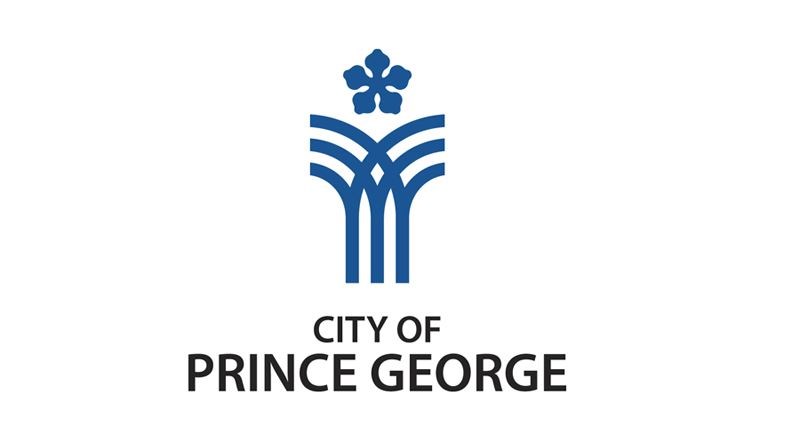The City of Prince George made the right decision by not signing on with the industry-led packaging and printed paper stewardship group, said a small business group.
"I think they're going to look like geniuses when all is said and done," said Mike Klassen, B.C. provincial affairs director for the Canadian Federation of Independent Business. "Good for the city staff for determining that this is a bad deal for Prince George taxpayers."
Last summer, both city council and Regional District of Fraser-Fort George board of directors turned down the financial incentives on offer by Multi-Material BC (MMBC) to collect recyclables.
MMBC represents a variety of producers of packaging and printed paper products, which the province has legislated as being responsible for the stewardship of the materials they introduce to consumers as of May 19.
CFIB has been calling out the MMBC plan as having shortfalls not only for local governments, but also for small businesses, especially those that don't have the staff and resources to devote to making sure they're complying with all the new reporting rules.
On Tuesday, the same day a coalition of businesses launched a campaign calling for the province to delay the start of the program, the Fort Nelson and District Chamber of Commerce sent a letter to Environment Minister Mary Polak and Minister of State for Small Business Naomi Yamamoto expressing their concerns over the cost of the program to small businesses.
"There is still time to fix this - if the goal is truly to reduce packaging and create a stronger, competitive province we need to start over with this legislation, engage in meaningful conversation with business and ensure the regulation complies with the province's guidelines in reducing red tape, letting business get back to business and encouraging investment and business development in B.C.," wrote chamber executive director Bev Vandersteen.
In early February, the Ministry of Environment announced it was taking steps to try and mitigate the impact on small businesses by exempting some of them from any MMBC reporting or recycling costs if they met certain criteria. These included producing less than one tonne of packing and printed paper, operating as a single point of retail or generating less than $1 million in annual revenue.
But those steps are simply incentives for businesses to stop growing, said Klassen.
"These are the unintended consequences of bad public policy, but if they actually took two minutes to think about it, you've now created a reason why business wouldn't want to grow, or open a second location, or actually start to generate more revenue or hire more staff," he said. "And so well done, if that's what your object is - to stall the economic growth in B.C. communities - then you've found a great tool for that. But I don't think that was the goal."
The Prince George Chamber of Commerce welcomed the government's Feb. 5 announcement about the exemptions, but CEO Christie Ray said there are just as many questions as answers when it comes to the new recycling program.
"We absolutely do feel environmental stewardship is important but as long as it's tempered with small business' best interests," said Ray.
"MMBC has not provided anything to demonstrate how these fees will improve any aspect of recycling in B.C., indeed it looks as though we will lose the existence of recycling depots in communities across the province which not only provide recycling services but local jobs and many are seen as leaders in environmental responsibility in their communities," Vandersteen wrote.
The local chamber head also said the organization "supports Fort Nelson and echoes the concern on behalf of [their] membership."
Local recycling company Blue Jewel Curbside Recycling is waiting along with everyone else to see what MMBC announces as the Prince George service provider.
Owner Duane Culham said he didn't bid on the collection contract.
"There wasn't much consultation, but I did have a chance to look over the proposal just as the city did and I decided I didn't want to get involved in that contract as it was," Culham said.
If the news is that there will be a curbside collector in the city, Culham said he expects to lose the residential aspect of his business and he will focus on the commercial side.
"The company itself will certainly be changed but I'm not going to lose too much sleep overnight about it," Culham said. "These things happen."
The company has already been downsizing over the past year, he added, due to the inability to collect plastics after losing the Chinese market.
The market situation is one that Culham said is puzzling.
"I mean the whole program, if you ask me, is going at it a little backwards. The province is mandating that recycling happens but there's no encouragement to develop a market for recycled materials," he said. "So there's still going to be a glut of material on the market that may or may not be wanted by anybody."
MMBC has brought on Green By Nature EPR - a coalition of Merlin Plastics, Cascades Recovery and Emterra Environmental - to co-ordinate the marketing of collected packaging and printed paper to end markets.
An advisory committee has been struck by MMBC for stakeholders to provide feedback on the recycling program and keep informed, with the first meeting expected to take place next week. The Union of B.C. Municipalities has three seats for local government representatives at the meeting that it's currently trying to fill.



